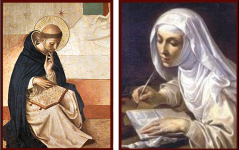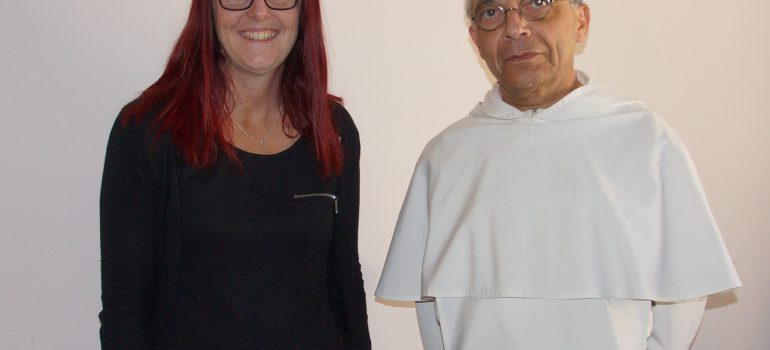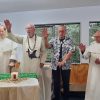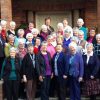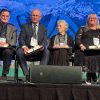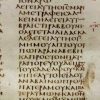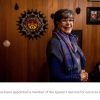Our world is battered and broken in so many ways. At the Opening Mass for World Youth Day Poland last year Pope Francis called on those gathered to have a positive impact on the world. He asked them whether they could change the world. The crowd shouted YES! Pope Francis is relying on young people to fix our broken world.
The first steps of change come in the form of a Synod on Young People, the Faith and Discernment of Vocation at which Cardinals and Bishops will meet in October 2018. In a letter from Pope Francis to young people dated 13 January 2016 Pope Francis recognises that YES shout came from “young and youthful hearts, which do not tolerate injustice and cannot bow to a “throwaway culture” nor give in to the globalisation of indifference”. He urges young people to listen to the cry arising within their inner selves and not to be afraid. He firmly believes that a better world can be built as a result of their desire to change and a willingness to make bold choices.
In April this year, I was lucky enough to attend a preparatory meeting for this Synod. Two representatives attended each from over 100 countries and 40 youth movements. I have returned home to Aotearoa New Zealand with two phrases in my mind take a risk and be courageous! The time has come for us to read the signs of the times, to listen intently to young people and to accompany young people in the world today as they make bold choices that will be the building blocks towards a better world in the future.
Whilst the Synod is targeted at those aged 16 to 29 all of us have a role to play in this pastoral process. Those of us aged 30 and older are called to animate young people and to accompany them as they move through the Synod journey. Our Bishops are called to waste time listening to young people. In this letter, Pope Francis tells the young people that the Church wishes to “listen to your voice, your sensitivities and your faith; even your doubts and your criticism”. Again and again when we were in Rome we heard that we must listen intently to young people.
For me as the leader of a Diocesan Youth Ministry team this means that when we are in meetings or making decisions I now listen to the views of every person on the team, starting with the youngest. Only when we have heard all their voices will I contribute. Whilst my silence was initially uncomfortable and challenging for some of our team, the rewards have already been huge with a number of new initiatives and new ideas commenced. These ideas might not have been shared previously as young people will often be guided by those who they see as being older, wiser or as having more experience. As you read this article you might reflect on your own ministry and the groups/committees you are involved in. How is the voice of young people heard? Does their voice have priority?
In the Aotearoa New Zealand context our Bishops are agreed that there will be a national survey process. The online survey will be open from late July through to the end of August. We will survey what young people are thinking about our world and our church today. From their input the New Zealand Catholic Bishops will prepare a report which will be sent to Rome in October this year. This data will also be used for planning ministry with young people in the future.
This is to be a pastoral process. Take a moment to consider how you gather in groups now. How can you intentionally dialogue with young people and in doing so encourage them to make sure that their voice is heard in the Synod process? Discussion questions have been prepared and these are shown at the end of this article. My invitation is for those who are in ministry with young people to animate or start the discussion with those young people. For those who gather but do not have young people in their group how might you initiate a discussion with young people in your wider community? It’s important to know that the Synod is open to all young people. We are particularly keen that young people of other faiths, young people of no faith and young people who are on the fringes of society are encouraged to share their voice. Pause for a moment and bring to mind those you can invite to join the discussion.
Since returning from Rome, many people have asked me “What were the highlights?”
The Church has a strong desire to connect with young people and really wants to celebrate, support and include them. We saw Pope Francis twice: up close while he was preaching at a Prayer Vigil and the following day celebrating Mass on Palm Sunday. Whilst we didn’t understand what he said in Italian, we could recognise his passion for young people and this process is a priority.
The Synod gave us the option to connect with delegates from around the world. It was a rich experience of the Universal Church, especially being able to hear from the perspective of people from countries vastly different from New Zealand (especially those from the Middle East and Africa). It was sobering to hear of their unique challenges in ministry with young people. It was also a great blessing to connect with countries with more similar contexts (Australia, USA, Ireland, England).
The mission we were given was very achievable. This is to be a pastoral process that the whole community can engage in. Young people are tasked with talking to their grandparents and other older people to hear about the importance of faith traditions and what their dreams and hopes were when they were young. They are also encouraged to go out and talk to young people who are not Catholic – to engage with young people of other faiths, young people of no faith, young people who are perhaps living on the margins of society in detention centres, the homeless etc. Those of us 30 and older are to animate and encourage this pastoral process. We are to ensure that the voices of young people are listened to. Bishops are called to ‘waste time’ listening to young people.
The Synod is an opportunity for everybody in the Church to come together for one mission – parishes, schools, youth movements and religious congregations. A personal highlight for me was to meet the Master of the Dominican Order while I was in Rome. Fr Bruno had already had a personal meeting with Cardinal Farrell about the Synod process and indicated that all the religious orders have been asked at the highest level to be engaged in the process. He wanted my ideas about how the Dominican Order should engage. His hope is that branches of the Dominican Family will collaborate together and make preaching to young people our priority. He was very clear that we must preach together and that preaching must come before formation. How can we do that as Dominicans in Aotearoa New Zealand?
I’m excited that everybody in the church is being asked to focus in a very positive way on young people. I hope you will be part of this pastoral journey. If you would like to know more I have included links to key documents below or please feel free to contact me at the Diocesan Centre in Auckland on 09 360 3021 (office) or on email teresam@cda.org.nz.
Teresa McNamara
Photo: Teresa McNamara with Fr Bruno Cadore
Small group discussion questions:
- What do you think are the best places/events to get together as young people in general?
- What makes you feel like that?
- What do you think are the best places/events to get together as young people that are put on by the Catholic Church?
- What makes you feel like that?
- Can you imagine why non-Catholic, but Christian, gatherings could be appealing to you and people you know?
- How is popular culture and media incorporated into Catholic Church activities including music?
- What are the main challenges you feel young people face today?
- What are the main opportunities you feel young people face today?
- Do you feel that you have a voice in the Catholic Church?
- What makes you feel like that?
- Do you feel like you are heard by the Catholic Church?
- What makes you feel like that?
- Do you feel like the Catholic Church cares about you?
- What makes you feel like that?
- How does/could the Catholic Church listen to your point of view better?
- What do you want from the Catholic Church?
- A person’s vocation is what they feel they are called to do in their life. How is your family involved in your vocational decisions?
- How are people in your community involved in your vocational decisions?
- How do the people that educate you (in school/university/etc) influence your vocational decisions?
- How do you feel Maori culture could be incorporated into Christian teaching?
Key documents:
Preparatory Document:
http://press.vatican.va/content/salastampa/en/bollettino/pubblico/2017/01/13/170113a.html
Letter from Pope Francis:
http://press.vatican.va/content/salastampa/en/bollettino/pubblico/2017/01/13/170113b.html
Youth Synod prayer:
https://w2.vatican.va/content/francesco/en/prayers/documents/papa-francesco_preghiere_20170408_giovani.html
Transcript from Prayer Vigil Talk by Pope Francis:
https://w2.vatican.va/content/francesco/en/speeches/2017/april/documents/papa-francesco_20170408_veglia-preparazione-gmg.html
Transcript of homily of Pope Francis at Palm Sunday Service in Rome
https://w2.vatican.va/content/francesco/en/homilies/2017/documents/papa-francesco_20170409_omelia-palme.html
Ted Talk: Pope Francis on Why the only future worth building includes everyone.
Video: https://www.ted.com/talks/pope_francis_why_the_only_future_worth_building_includes_everyone?language=en
Transcript: https://www.ted.com/talks/pope_francis_why_the_only_future_worth_building_includes_everyone/transcript?language=en#t-1001740
